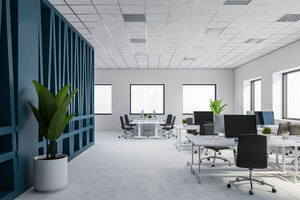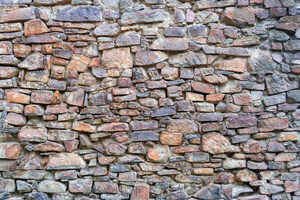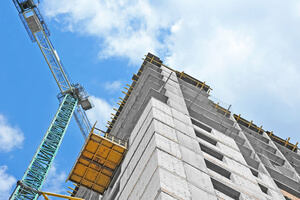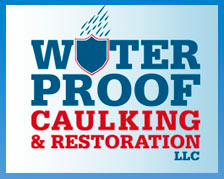Commercial masonry comes with its own share of risks and strategies compared to residential construction. Whether you’re building a new commercial structure or looking to add on to what you already have, you’ll need to decide which type of masonry is best for your project. Each variety offers both strengths and drawbacks that are critical to consider in the scope of your goals.
In order to do that, you’ll need to think carefully about the factors that make different masonry products unique, and speaking with a professional is a great way to understand how these products would function in your specific use case. Here are four ways to determine the best masonry type for your commercial building, all depending on what is most important to you.
Pick Your Aesthetic

If what you’re most concerned about is the way that your structure would look, then stone and stucco are the most popular choices. A building’s aesthetics are critical in some industries-especially when businesses receive guests regularly and need to make a favorable impression.
Stone is a classy and modern choice, and stucco offers a unique and visually interesting surface. However, if you operate a commercial building that doesn’t see much in the way of customer engagement (such as a warehouse), the aesthetic might not be as important to you. In this case, think about some of the other factors below when determining your ideal masonry.
Evaluate Your Budget
If budgetary constraints are your main concern, then consider either brick or CMU (commercial masonry units made of concrete). These materials are still durable and can be visually appealing, but they come at a lower price tag than things like natural stone.
Stucco is a mid-range option that is more expensive than brick but will hit your wallet less than stone. Rest assured that no matter which type of masonry you choose, a reputable contractor in charge of installation will be able to create a structure that stands the test of time with regular maintenance.
Consider Longevity Goals

For building owners and managers who are primarily interested in how long a material can last, masonry overall is a great choice in comparison to something like siding. However, stone is overall the single most durable type of masonry, especially if it is installed in slabs or large pieces. Concrete also lasts for a long time, but as with brick, owners must be vigilant to address any issues of cracking or deterioration of mortar as soon as possible. These simple and straightforward repairs will keep brick and concrete lasting for 50 or more years with little effort.
Stucco can be durable in most contexts, but speak with an expert to understand how the local weather and the changes in seasons will impact this material. Its long curing time and flexibility can make it adaptable, but it may be prone to cracking depending on the weather in your area and even how you intend to use the commercial building.
Think About the Environment
Some businesses are more concerned about the environmental impact of their choices over any other type of consideration. If this sounds like your company, then certain types of masonry are more renewable than others. For example, concrete can be made using broken down stone and other pieces that have been recycled from other projects. This allows such material to be reused freely without compromising structural integrity, quality or appearance.

Brick is also very eco-friendly because it’s made from materials like clay that are available in abundance and do not leave a significant carbon footprint when harvested. Other brick varieties can be made with limestone and even fly ash, which is a byproduct of power plants that would go to waste otherwise. If environmental concerns in your masonry are important to you, speak with an expert to explore the specific types of brick and concrete that are made with the most renewable resources or harvested with minimal environmental impact.
As an additional benefit, you can consider working with a mason who commits to sourcing a certain percentage of all building materials within a certain mile radius of their job site. This keeps business within the local community and reduces carbon emissions.
Trust the Pros to Help You Tackle Commercial Masonry Projects
No matter what your goals are for your upcoming commercial masonry project, you have some important decisions to make about the process. The experts at Waterproof Caulking & Restoration can guide you through the decision-making process so that you can determine which material is most suitable for your needs. Reach out to learn more or to schedule an appointment to discuss your project goals and concerns.
